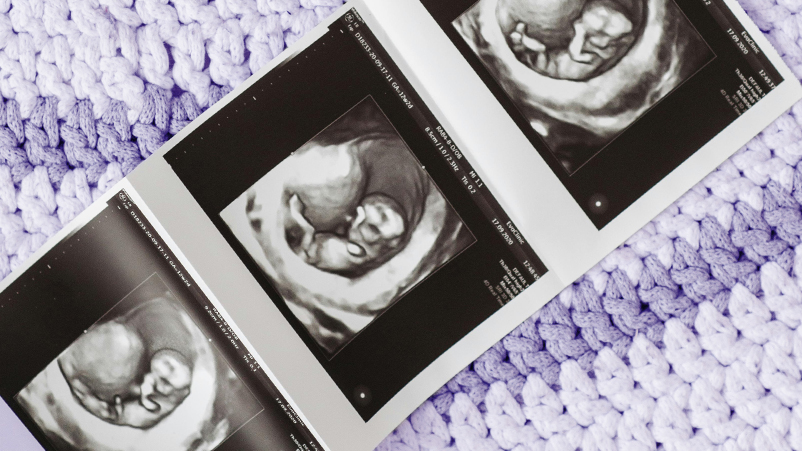The emergency contraceptive/morning-after pill has three modes of action (as does the regular birth control pill); that is, it can work in one of three ways:
- The normal menstrual cycle is altered, delaying ovulation; or
- Ovulation is inhibited, meaning the egg will not be released from the ovary;
- It can irritate the lining of the uterus (endometrium) so as to inhibit implantation.
Keep in mind that fertilization (the union of female ovum, or egg, and male sperm) occurs in the fallopian tube and that fertilization marks the beginning of a new human life – and the beginning of the pregnancy. The newly created child then travels down the fallopian tube to the uterus (womb) where he or she implants. Implantation is necessary for the new child to receive nourishment from the mother and continue developing. The journey from the fallopian tube to the womb takes between five and seven days during which pregnancy cannot be readily detected.
Therefore, if a woman ingests emergency contraception after fertilization has taken place, the third mode of action can occur. The lining of the uterus can be altered causing the woman’s body to reject the living human embryo, making implantation impossible and the child will die. This result is called a chemical abortion; therefore emergency contraception is an abortifacient.
So, the only real “emergency” in all of this is the woman’s fear of being pregnant.
Two of the most commonly used emergency contraceptive pills are Preven and Plan B. The websites for both of these drugs clearly indicate that each can work to prevent a “fertilized egg” (which is actually a newly formed human being) from implanting in the uterine wall:
How do the PREVEN® emergency contraceptive pills prevent pregnancy?
PREVEN® can stop or delay ovulation (the release of an egg), it can stop sperm from fertilizing an egg if it was already released, and it can stop a fertilized egg from attaching to the wall of the uterus.”
Source: http://www.drugs.com/mtm/preven-ec.html
How Does Plan B® Work?
Plan B® (levonorgestrel) may prevent pregnancy by temporarily stopping the release of an egg from a woman’s ovary, or it may prevent fertilization. It may also prevent a fertilized egg from attaching to the uterus.
Source: http://www.planbonestep.com/about-plan-b-one-step.aspx
Proponents of “emergency contraception,” as well as the Preven and Plan B websites, contend that emergency contraception does not cause abortion. They argue that emergency contraception prevents pregnancy and thereby reduces the need for induced abortion. However, they intentionally define the term “pregnancy” as implantation of a fertilized egg in the lining of a woman’s uterus, as opposed to “pregnancy” beginning at fertilization.
Whether one understands pregnancy as beginning at “implantation” or “fertilization,” the heart of the matter is when human life begins. It is important to keep in mind that scientists have confirmed that at the moment the sperm and the egg join (fertilization), a new human being is created who is completely different from his/her mother.
This is not a subjective opinion, but an objective scientific fact. Accordingly, any artificial action that works to destroy a fertilized egg (human embryo) is abortifacient in nature.
See (Read)
Check out this video that explains how the pill is abortifacient (i.e., how it can kill your preborn baby without you even knowing): http://www.youtube.com/watch?v=jiCU46_lWeE
The common description of the MAP as emergency “contraception” fails to accurately describe its possible abortifacient action and is misleading the public. The confusion is aggravated by attempts to re-define pregnancy as occurring after implantation. Potential users of MAP are not told that this drug may abort an established pregnancy. This is not informed consent.
Some basic facts about ovulation and the possibility of becoming pregnant:
- A woman ovulates approximately once every 28 days. Therefore the chance that a woman will ovulate on any randomly selected day is 3.57 percent.
- When a woman ovulates, the egg is able to be fertilized for 12-24 hours (1 day).
- When sperm enters the woman’s body, it remains alive and able to fertilize an egg for 1-5 days.
- It takes emergency contraception from 12-24 hours to be effective (1 day).
- Emergency contraception remains effective for at least 10 days.
- It takes a fertilized egg 5-7 days after ovulation to implant in the woman’s womb.
In 78% of all cases, taking emergency contraception is unnecessary because the woman could not have conceived a child (meaning she was not fertile to begin with).
Thus, emergency contraception only has an effect 22 percent of the time.
Of those 22 percent, the mode of action in which the emergency contraception works depends on when the woman takes it:
Emergency contraception taken within 24 hours, will act 43 percent of the time by preventing implantation (thus killing the newly created child)
Emergency contraception taken between 24 and 48 hours will act 57 percent of the time by preventing implantation (thus killing the newly created child)
Emergency contraception taken between 48 and 72 hours will act 71 percent of the time by preventing implantation (thus killing the newly created child)
See (Read).
Experts confirm abortifacient potential of morning-after pill
The most recent scientific study on Levonorgestrel, the essential component of the “morning-after pill” or “emergency contraceptive,” confirms that the drug does indeed have a third effect on users, which consists in preventing the implantation of a fertilized ovum in the womb of the mother.
The promoters of the drug in Latin America, where most countries have laws against abortion, have argued that the there is no scientific basis for the “third effect,” and that therefore the drug should be legalized. Dr. Horacio Croxatto, professor at the Chilean Institute of Reproductive Medicine, said in 2006 that the morning-after pill “is not abortifacient because it only prevents pregnancy by stopping ovulation.”
Nevertheless, the most recent study (2007) by Doctors Mikolajczyk and Stanford of the Department of Medicine in Public Health of the University of Bielefeld (Germany) clearly indicates that the pill’s “real effect” includes mechanisms that prevent implantation.
Source: http://www.catholicnewsagency.com/new.php?n=9463


